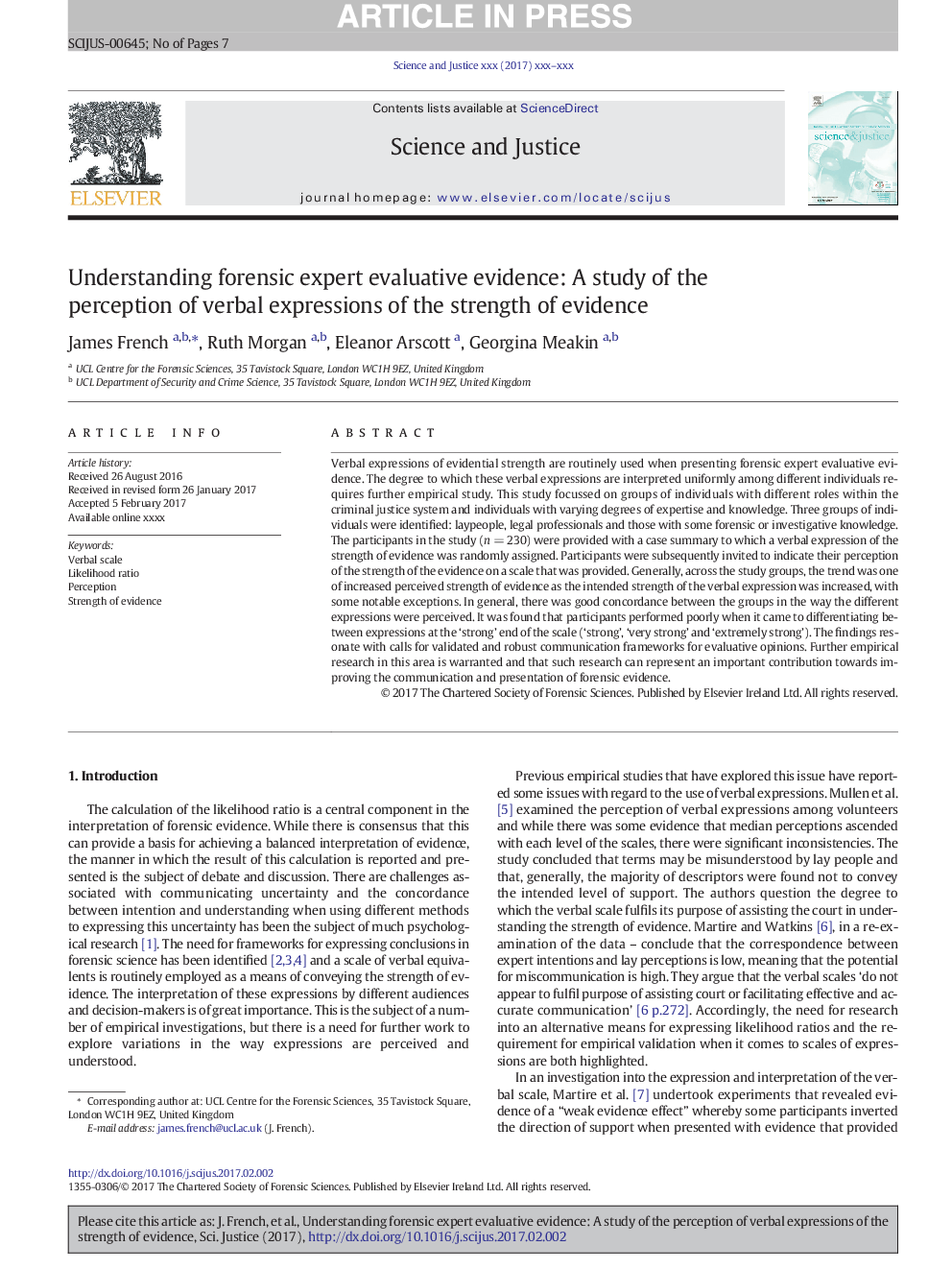ترجمه فارسی عنوان مقاله
شناختن شواهد ارزیابی کارشناس پزشکی قانونی: مطالعهی ادراک عبارات کلامی قدرت شواهد
عنوان انگلیسی
Understanding forensic expert evaluative evidence: A study of the perception of verbal expressions of the strength of evidence
| کد مقاله | سال انتشار | تعداد صفحات مقاله انگلیسی |
|---|---|---|
| 134981 | 2017 | 7 صفحه PDF |
منبع

Publisher : Elsevier - Science Direct (الزویر - ساینس دایرکت)
Journal : Science & Justice, Volume 57, Issue 3, May 2017, Pages 221-227
ترجمه کلمات کلیدی
مقیاس کلامی، نسبت احتمال، ادراک، قدرت شواهد،
کلمات کلیدی انگلیسی
Verbal scale; Likelihood ratio; Perception; Strength of evidence;

